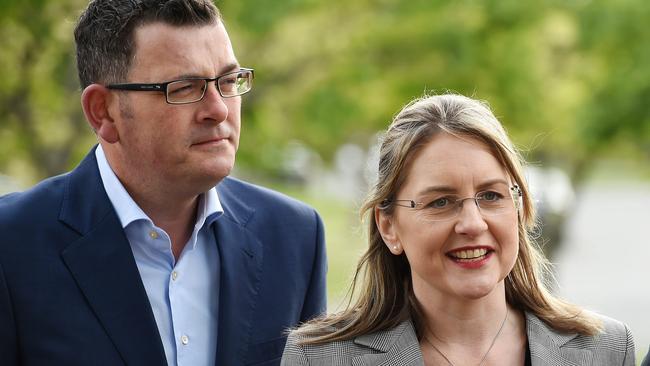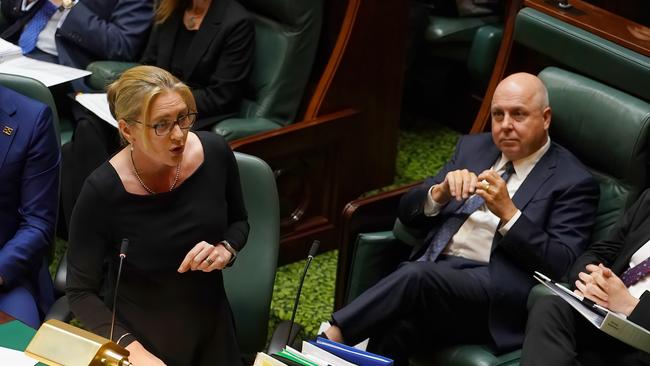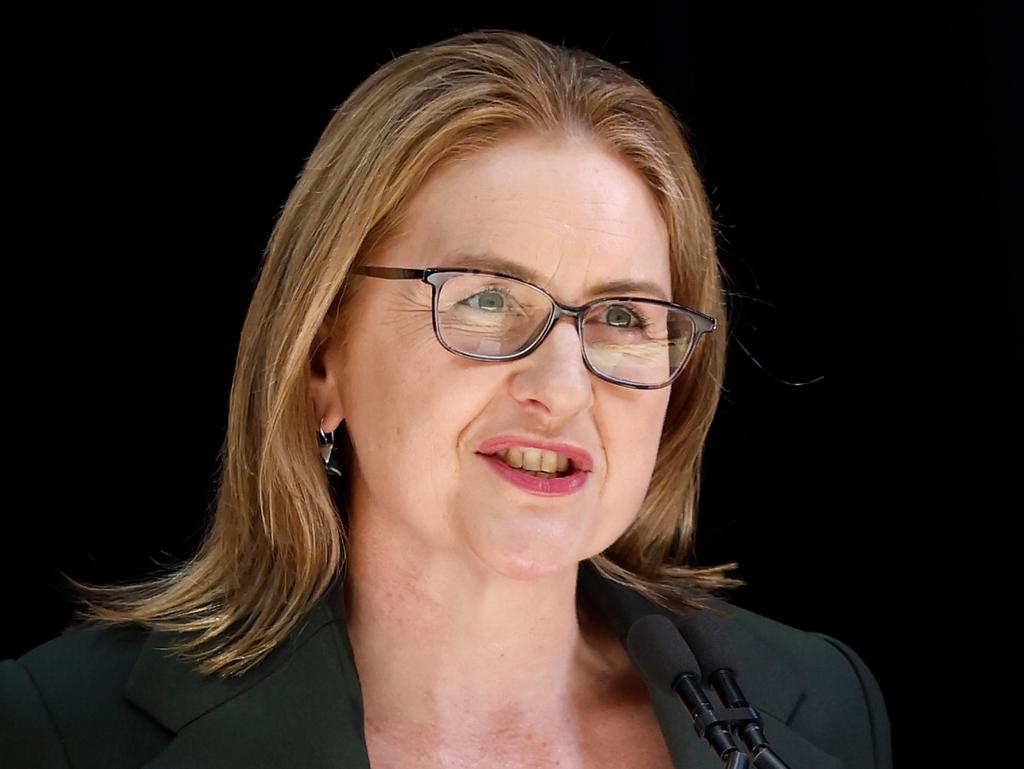‘No plan’ to cut $256bn Victorian debt
Record debt, ballooning deficits and no plan to save Victoria: watchdog’s scathing verdict.

Victoria’s state debt will crash through $250bn within four years but the Allan government has failed to map out a plan to repay the spiralling burden, the financial watchdog has warned.
In a damning verdict on Labor’s financial management, state Auditor-General Andrew Greaves has warned total state debt – a measure including government agencies such as the troubled WorkCover Authority – could hit $256bn by June 2027.
The Auditor-General’s dire warning in his 2022-23 annual financial report, tabled in parliament on Friday, also raises the alarm over ongoing operating deficits and puts the government on notice over the health of the state’s books.
“Victorian state debt is historically high and expected to grow as the government continues to borrow to fund its significant planned infrastructure program,” the report states.
The Auditor-General delivered a stark warning to Premier Jacinta Allan and Treasurer Tim Pallas, stating in the financial report card: “The path to a return to surplus will continue to require significant fiscal discipline to manage rising employee and other costs, and to deliver the cost-saving initiatives announced in past budgets
“Operating losses erode reserves and make the state less financially resilient and able to respond to short-term emergencies. The imperative to return to operating surpluses sooner is also given sharper focus by the state’s debt levels, which are growing faster than its revenues; and also because of the growing bite that interest is taking out of revenues.
“There is presently no indication, based on the current budgetary horizons, of when and how the state will be able to start to pay down the debt that it has and plans to accumulate.”

The watchdog’s 92-page report warned debt was spiralling “again this year at a pace faster than revenue and economic growth”, and “if it continues to grow at this pace, the cost of servicing debt will compound this fiscal challenge”.
“An unsustainable and rising level of debt can pose a significant risk to future prosperity,” the report states.
“It also threatens economic stability if not managed in a fiscally sustainable manner because debt imposes direct cost on taxpayers now and in the future.”
Among the most damaging findings for Ms Allan, Mr Pallas and former premier Daniel Andrews was that “the government (has) not laid out a plan for when and how the state will pay down existing and future debt”.
“The state must consistently achieve operating surpluses before it can stabilise its growing debt levels. If the state wishes to reduce debt it would need to divert spending away from other public services, increase its revenues, or sell assets.”
Shadow treasurer Brad Rowswell said Labor had no plan to reduce Victoria’s record debt and the state faces significant risks as its financial position deteriorates.
“Under Labor, Victoria is broke and life continues to get harder,” he said.
“Jacinta Allan simply can’t manage money and her waste and mismanagement is only making things worse for Victorians at a time when they are already experiencing a cost-of-living crisis.”
The government defended its budget management, pointing to growing revenues and the creation of 540,000 jobs in the past three years.

“Our economy is strong, jobs are at a record high and our fiscal plan is on track,” a government spokesperson said. “We are the only state or territory with a Covid debt repayment plan – paying back the emergency Covid credit card while we continue to grow the economy and jobs.
“Confronted with a one-in-100-year economic threat, the government acted swiftly to support businesses so they could sustain jobs and emerge from the pandemic in the best shape possible.”
The Auditor-General’s report also raised red flags about the legitimacy of the government’s claimed operating surplus. While Victoria had posted a surplus of $4.3bn, this was only possible because of a $7.9bn dividend from VicRoads, meaning the underlying operating cash deficit was in fact $3.6bn, the report found.
The general government sector’s operating loss from transactions of $8.8bn was the fourth year in a row of operating losses, bringing its accumulated losses over this period to $43.7bn.
The Auditor-General’s report follows the release this month of the September quarter budget result, revealing Victoria has posted a $2.5bn deficit for the first quarter of this financial year.








To join the conversation, please log in. Don't have an account? Register
Join the conversation, you are commenting as Logout